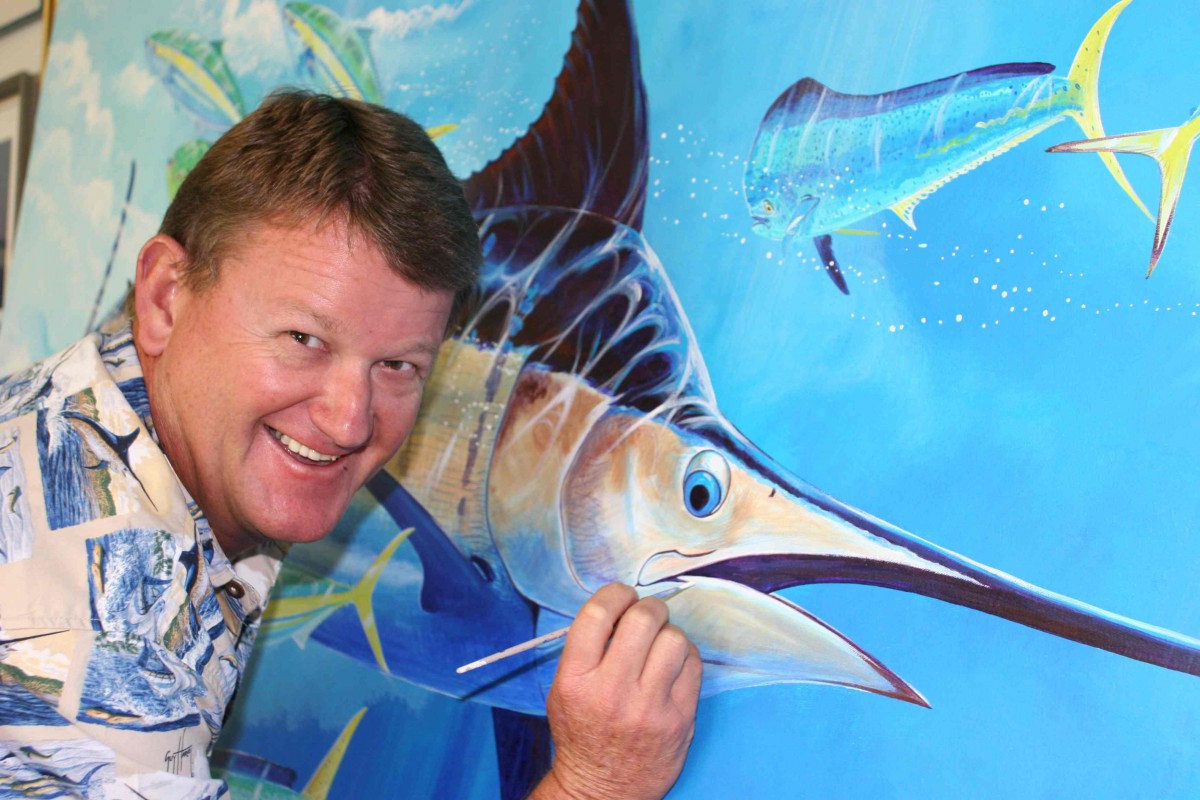 Marine wildlife artist and conservationist Guy Harvey spent five years with a team of shark geneticists, researchers and trackers tagging, pursuing, studying and analyzing the patterns of migration for tiger sharks.
Marine wildlife artist and conservationist Guy Harvey spent five years with a team of shark geneticists, researchers and trackers tagging, pursuing, studying and analyzing the patterns of migration for tiger sharks.
The research collected is revealed in Harvey’s latest documentary, “Tiger Shark Express,” which he will present at USF St. Petersburg on Wednesday Sept. 11.
“We knew very little about tiger sharks. We knew that they do migrate but we had no idea how far or how long,” Harvey said in a phone interview on Saturday, Sept. 7.
The team started their studies in the Bahamas, venturing to Bermuda and then out to open ocean in the Atlantic for half a year. Tiger sharks spend half a year in the southern latitudes, but their migration revealed their adaptability to a completely different ecology.
Thought to mainly keep to the warm waters of the Caribbean, the team found that tiger sharks will migrate to the colder, deeper waters of the Atlantic Ocean.
Tiger sharks can grow to be 11 to 13 feet in length, weighing more than 2,000 pounds. Like many of the “bloody fish,” their large size makes them at the top of the food chain, with virtually no predators of their own.
Harvey’s team’s research set a new record for studies of tiger sharks with 50 sharks tagged within three years. Tiger sharks remain closer to the surface than other species of sharks, so their dependable nature was simple to track, Harvey said. Forty of the 50 sharks were captured and studied around Bermuda.
The team was composed of shark experts including geneticist Mahmood Shivji, tracker Brad Wetherbee, researcher Samuel Gruber, diver Jim Abernethy and veterinarian Neil Burnie. Filmmaker George Schellenger captured every step of the research process, from chumming to dissection.
The team had access to the latest technology for a tagging system and assistance from numerous professional staff, including the Bahamian National Trust.
Tiger sharks, like many species, face dangers in fishing industry, Harvey said, explaining that their immense size and slow rate of maturity make them vulnerable in places prone to overfishing and shark finning.
The Guy Harvey Foundation, which sponsors research efforts in marine environments, contributed to efforts to alter fisheries in the Caribbean. The scientists presented the findings from the trip to the Bahamian government.
For Harvey, the research findings require action.
“The hardcore research part done by institutions very rarely gets into public domain,” Harvey said. “The documentary is a great way of telling the story of a five-year scientific research effort and turning into an exciting adventure.”
Harvey said research of aquatic species can be seen as a “soft option” for many, but he balanced his passion for marine science with his artistic talents. T-shirts, tumblers, posters, art prints and other Guy Harvey merchandise sales are funded back to the Guy Harvey Foundation for further research of marine species.
“We’re taking snapshots of animals’ lives and their interactions in their environment. I want to share the benefit of the gathering of the long sets of data and marine systems generally,” Harvey said. “I’d like to push people to appreciate the need for more research work, to get people to volunteer to get involved, whether they are fishing for snook off a dock or tiger sharks in Bermuda.”
Harvey will present “Tiger Shark Express” at 5 p.m. on Wednesday, Sept. 11 in the University Student Center ballroom. The event will feature a screening of the film and a Q&A session with the scientist.



